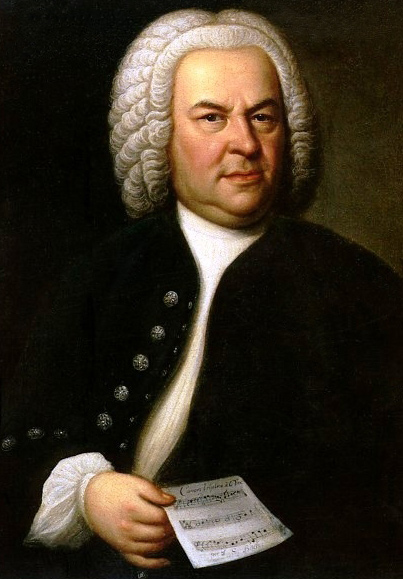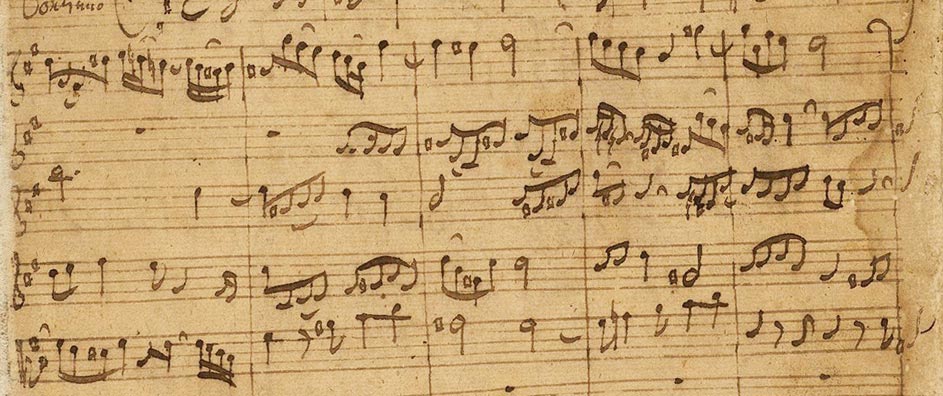The views expressed in our content reflect individual perspectives and do not represent the authoritative views of the Baha'i Faith.
Like all music, the figured bass should have no other end and aim than the glory of God and the recreation of the soul… – J. S. Bach
We, verily, have made music as a ladder for your souls, a means whereby they may be lifted up unto the realm on high… – Baha’u’llah, The Most Holy Book, p. 38.
Strive day and night; perchance these sleeping ones may be awakened by the celestial strains of the city of melody and hear the soft, delicate music which is streaming down from the kingdom of the Glory. – Abdu’l-Baha, Divine Philosophy, p. 78.
Does a symphony that explores the conscience exist? Yes! Have you ever heard Johann Sebastian Bach’s masterpiece, the Mass in B minor? If you’d like to hear its beautiful celestial strains, you can begin listening to Mass in B minor while you read this essay, where I’ll try to explain what it means to me and many others.
Bach’s Mass in B minor ranks, without a doubt, among humanity’s paramount artistic accomplishments. Considered as “one of the greatest choral works of all time,” the Mass in B minor was Bach’s last composition, finished in the year before his death in 1750. The Italian musicologist Alberto Basso described it this way:
The Mass in B minor is the consecration of a whole life: started in 1733 for “diplomatic” reasons, it was finished in the very last years of Bach’s life, when he had already gone blind. This monumental work is a synthesis of every stylistic and technical contribution the Cantor of Leipzig [Bach] made to music. But it is also the most astounding spiritual encounter between the worlds of Catholic glorification and the Lutheran cult of the cross. – “The ’Great Mass’ in B minor,” from the recording by Philippe Herreweghe and Collegium Vocale Gent, 1999.
 You might not think that Bach, a German Lutheran, would write an entire Catholic Mass, which has 27 sections and takes at least two hours to play. But obviously the great composer needed that huge musical canvas to express his feelings and his art at the end of his life. Most of the people who’ve written about the deep emotions the music of the Mass in B minor evokes have said that it mirrors the inner workings of Bach’s conscience as his death drew near. In fact, some call the Mass in B minor a hymn to the workings of the human conscience and the impermanence of our material lives.
You might not think that Bach, a German Lutheran, would write an entire Catholic Mass, which has 27 sections and takes at least two hours to play. But obviously the great composer needed that huge musical canvas to express his feelings and his art at the end of his life. Most of the people who’ve written about the deep emotions the music of the Mass in B minor evokes have said that it mirrors the inner workings of Bach’s conscience as his death drew near. In fact, some call the Mass in B minor a hymn to the workings of the human conscience and the impermanence of our material lives.
Bach said: “With devotional music, God is always present in his grace.” The Mass in B minor uses instrumentation and choral voices to express that powerful idea. It generates both joy and despair; asks God for forgiveness; and reflects back on the moral choices we all make in the course of a lifetime. You could call Bach’s remarkable compositional achievement a paean to our inner conscience, or perhaps the musical work that most honors and uplifts human morality.
If you’re listening now, just let your mind drift fully into the music, and try to hear what the music critic Otto Bettmann heard when he wrote “Bach’s music sets in order what life cannot.” You may hear a plea for forgiveness, regret, lamenting and sadness; but you’ll also hear beauty, ecstasy and glory, expressed in the yearning, wistful and hopeful blend of the choral voices and the instruments. You’ll hear Bach’s wish for unity, love and forgiveness. You’ll hear the ineluctable waning of the physical and the ever-nearing approach of the spiritual. You’ll experience the abject fear and the abiding delight of life. You’ll hear a man reviewing his decisions and their consequences; examining his conscience at the end of his life; and contemplating what it might mean for the life after this one.
Every person, if they live long enough, comes to this same place. Just as Bach did, as we age we all understand that our days are numbered. When that happens we begin to reflect, searching our conscience to better understand the arc of our lives. In some aging people, the memories of the earlier parts of life tend to become even stronger than the recent ones, making a review of the conscience that much more readily possible—and that much more vivid. This can be a frightening experience, or a transformative one; a dark journey or one that walks toward the light. Many people have enormous regrets at that stage of life, and regard their past history with dread, remorse and self-reproach.
To avoid looking back on your life with painful disappointment, the Baha’i teachings have a suggestion:
O Son of Being! Bring thyself to account each day ere thou art summoned to a reckoning; for death, unheralded, shall come upon thee and thou shalt be called to give account for thy deeds. – Baha’u’llah, The Hidden Words, p. 11.
If you regularly pray and meditate, you probably already incorporate these consistent “life accountings” into your daily spiritual practice. Reviewing your moral life on a daily basis—bringing yourself to account—clears and “resets” the conscience each day, improves the moral rightness of your behavior into the future and lets you stay present in the moment, rather than feeling remorse or depression or defeat over past actions. That spiritual practice, the Baha’i teachings say, allows us to lose the crippling feelings of guilt and sadness brought on by a burdened conscience—which frees us to arise to serve humanity, and listen to the divine symphony:
…those who live in the divine law are self-sacrificing in this path; for they have proven it by their deeds. They are neither visionaries nor utopians. With the greatest might and strength they have arisen to serve their fellow-men. Through their marvellous power they are establishing amity between the various nations and religions; they are working incessantly day and night… It is as though they had previously been opposing forces and were welded into one consciousness.
These souls have reached the highest station of self-sacrifice. Should the occasion arise, all that they possess would be freely given in order to unfurl the banner of the solidarity of the human race over the religions of the east and the west, so that all differences might be annulled and all peoples from one end of the earth to the other might sing in accord the song of life and peace, that it might be borne on the wings of light to the throne of the father, there to be blended with the symphonies of the heavenly angels and thus heaven and earth become harmonized with the golden strains of the music of unity. – Abdu’l-Baha, Divine Philosophy, pp. 180-182.
You May Also Like
Comments

















In accordance with the Divine Teachings, the acquisition of sciences and the perfection of arts is considered as acts of worship. If a man engages with all his power in the acquisition of a science or in the perfection of an art, it is as if he has been worshipping God in the churches and temples...What bounty greater than this that science should be considered as an act of worship and art as service to the Kingdom of God.
– \'Abdu\'l-Bahá